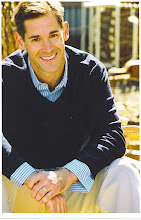 The second bout of public tears just before a crucial primary vote - after no evidence that Senator Hillary Clinton has a history of tearing up in front of the cameras - provokes the unavoidable question: should feminists actively vote against Clinton to defend the cause of female equality?
The second bout of public tears just before a crucial primary vote - after no evidence that Senator Hillary Clinton has a history of tearing up in front of the cameras - provokes the unavoidable question: should feminists actively vote against Clinton to defend the cause of female equality?She is, it should be conceded, the most viable female candidate for the presidency in history. But feminism isn't just about women wielding power. Female monarchs and despots have ruled throughout history - and it was no thanks to feminism. Few would see Elizabeth I or a dynast like Eva Peron as feminist role models. What matters is not that they came to such prominence; but how they did it. Inheriting office is no achievement. In some ways, inheriting it, when you could have won it alone, is a rebuke to feminism. What marks a true feminist is a woman who gains democratic office through strictly meritocratic means. Think of Margaret Thatcher: a woman who came from lowly beginnings to master a chemistry degree and a legal career in the 1940s and 1950s, who won a seat in parliament single-handedly and eventually became a three-term prime minister for the Conservative party. Yes: the Conservative party. You think she didn't have to deal with prejudice and chauvinism? More than Hillary Clinton will ever know. But she never engaged for a second in the gender politics and nepotistic shenanigans that Clinton has. Thatcher had a rich husband but he was not a stepping stone to politics. She had two children, but never used them for public attention or photo-ops. She did it all - indisputably - on her own merits.
Hillary Clinton could have done the same. Continue article @ Andrew Sullivan
The first cry...she had a moment one can accept that, but today at Yale University really smacks of political trickery. It is a clear stunt, pathetic, is she really this desperate?

